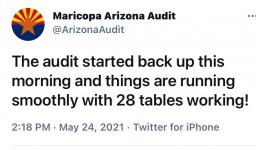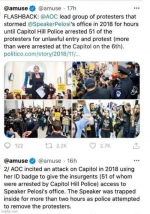A couple thoughts - I certainly agree that the canon of Scripture is closed. However, I don't think the intent of Luke 16:16 is to state that prophecy is concluded. Paul wrote prophecy in his epistles. An example of that would be in his letters to the Thessalonians, where he prophesies the coming of the Man of Sin in 2 Thess 2.
John the Apostle, writing decades after Jesus's ascension, wrote the most famous book of prophecy, Revelation.
I think Luke 16:16 might refer specifically to the body of Scripture that was intended to prepare the Jews for Jesus's first coming. I might be wrong about that, but prophecy certainly came after Jesus uttered those words.
Also, Peter was very explicit in Acts 2 on the day of Pentecost when he told the crowd of amazed onlookers that what they were hearing was the fulfillment of the ancient prophesy of Joel:
"And in the last days it shall be, God declares,
that I will pour out my Spirit on all flesh,
and your sons and your daughters shall prophesy, and your young men shall see visions, and your old men shall dream dreams; even on my male servants and female servants in those days I will pour out my Spirit, and they shall prophesy."
Paul, John and Peter clearly demonstrate that prophecy did not end with Luke 16:16. We must take Jesus at His word with that verse, but we must make sure that we take Him at His meaning. One of the key principles of Scriptural interpretation is that if your interpretation of a passage contradicts another passage, you ought to re-examine your interpretation. We may be mistaken, even with our best and most honest efforts at interpretation, but God never errs.
Now, has prophecy continued past the days of the Apostles? Paul lists prophecy as a gift of the Spirit in common with many other gifts in Romans 12.
"Having gifts that differ according to the grace given to us, let us use them: if prophecy, in proportion to our faith; if service, in our serving; the one who teaches, in his teaching..."
He does not limit any of these gifts in their assignment, and the overwhelming vast majority of his 1st century readership would have been non-Apostles. Paul instructed the people with the gift of prophecy in Rome to use that gift.
Nowhere in Scripture does there appear to be a hard and fast end to any gift of the Spirit. Readers have surmised that these gifts have ceased, but that is opinion (which may be right or wrong), rather than fact.
How ought we judge a prophet? If someone claims to be a prophet, our first responsibility is skepticism. I John 4 says that we ought to test every spirit to avoid believing false prophecy. Deuteronomy 18 is also explicit - a prophet who presumes to speak in the Lord must see everything he says come to pass; otherwise, the penalty for false prophecy is death.
In summary, Scripture says prophecy is a gift and that it ought to be exercised; however, that exercise should be done with tremendous caution, because making God out to be a liar carries the penalty of death.
















